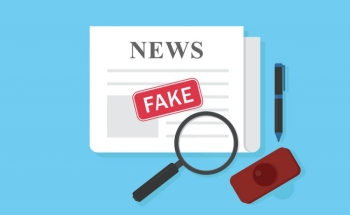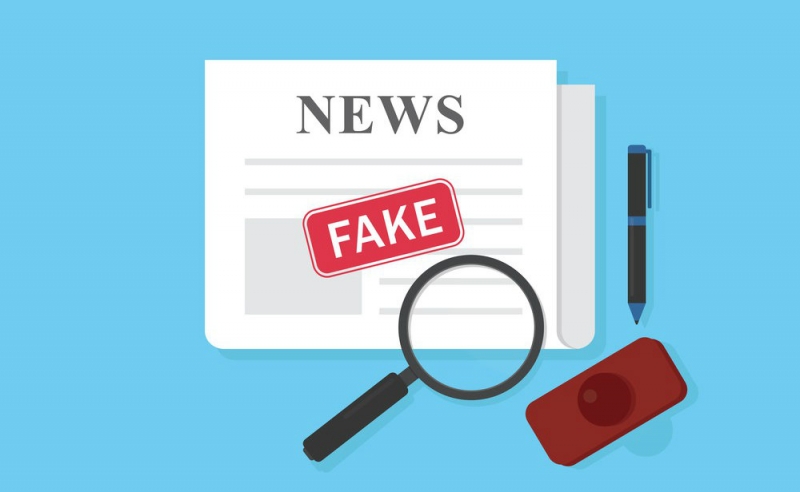
.png) Jaswant Kaur
Jaswant Kaur

Kunal Kamra is a household name. A stand-up comedian and political satirist, he has more than a million followers on Instagram. He relies on social media to express his views on social and political issues. His posts have a great reach and they evoke an instant reaction.
Recently, he filed a petition in the Bombay High Court against a recently enacted law, which could directly affect people like him. In fact, the impact might be overarching. It could affect anyone who has been using social media to voice his or her opinion. Now what is this law? Does it also mean that it could impact any one of us? Yes, it can, if a unit specifically formed for monitoring social media posts finds the content to be fake.
Now many would ask: what is wrong in this? We certainly do not want fake content anywhere, be it social media or any other mode of communication. Such content is capable of instigating violence, communal or political. True, the consequences of such content could be humongous. So, what is wrong in having rules that can help us in getting rid of such information? Let’s have a look.
Of late, new rules have been enacted under the Information Technology Act. Ever since this Act came into being, it has been a matter of concern for media professionals. Be it section 66A or Section 69A of the Act, they have been challenged in the court several times. Section 66A had been a bone of contention for many journalists as it was arbitrarily used to punish not only journalists but also ordinary people.
For instance, a Chemistry professor from Jadavpur University, Kolkata, was arrested and put behind bars for circulating a cartoon among his friends, ridiculing Mamata Banerjee. Similarly, two Air India employees were arrested for posting antagonistic content against a Union leader and a few politicians on Facebook and Orkut.
A girl was arrested for criticising the Mumbai Corporation’s decision to impose complete shutdown on Mumbai following the death of Bal Thackeray. A girl who liked her post was also arrested.
These are just a few incidents. There are many more. These incidents date back to the year 2012, i.e., immediately after the rules under the Information Technology Act were amended. Consequently, the government came up with an advisory and mandated the prior approval of an officer, not below the rank of Inspector General in metro cities or Deputy Commissioner of Police or Superintendent of Police at the district level as the case may be.
However, this did not bring a substantial change. The girls, who were arrested in 2012 for merely expressing their opinion, filed a public interest litigation before the Supreme Court. The court struck down the section and held that it was unconstitutional and violative of Article 19(1)(a) of the Constitution. Even after the court’s judgement in 2015, Section 66A has been used by the police and the lower courts. The issue was then brought to the notice of the government, which directed the states and the Union Territories to stop registering cases under Section 66A.
The new rules called Information Technology (Intermediary Guidelines and Digital Media Ethics Code) are no different. They empower the Ministry of Electronics and Information Technology to constitute a fact-checking unit. This unit will have the powers to determine “what is fake or false or misleading” with respect to “any business of the central government”.
The rules do not define what could be termed as “fake”, “false” or misleading”. This certainly raises concerns over the intention of passing such rules. In case these rules are implemented, they could also influence public opinion during the upcoming elections, something similar to what Facebook was held responsible for a few years ago.
Any post which may sound derogatory to the government can easily be removed. Similarly, an opinion piece, which might act as an eye-opener for the government itself, could be removed, simply because it does not go down well with the powers that be.
This fact check unit shall also have the powers to issue instructions to intermediaries vis-a-vis social media platforms, Internet service providers and so on for removing certain content based on its own judgement. To cut the story short, the government has got the powers to get any post removed which might affect its popularity in the name of fake news. Not only this, it shall easily bypass the process which has been laid down under Section 69A of the Act. Is this not against Press freedom?
Even Section 69A, which requires the information or content to be removed in case it is a threat to the national security, sovereignty or public order in the country, has also been challenged several times. The government has used this section to block several sites, apps including TikTok, Shareit etc.
In view of the precedents, the new rules will certainly be exploited for suppressing public opinion on matters that might be of interest to the government. Certainly, these new rules are against the constitutional values of the country, which also gives a right to be heard. Not only this, they also violate one’s fundamental right to speech and express opinion. They have also been enacted in gross violation of the procedures laid down by the Supreme Court of India in Shreya Singhal vs Union of India.
The Indian Newspaper Society, Editors Guild of India, the digital rights group, the Internet Freedom Foundation etc., have expressed deep concerns over these amendments. The Bombay High Court has asked the Centre to submit a response to the petition giving details about the background and reasons for framing these rules.
Besides Article 19(1) of the Constitution, Kamra has also submitted that the rules are against the provisions contained under Section 79 (exemption from liability of intermediaries in certain cases) of the Information Technology Act, 2000, Article 14 (equality before law) and Article 19(1) (g) (freedom to practise any profession or business).
The new rules do not have provision for issuing show cause notice and giving an opportunity of being heard. Not surprisingly, these rules were framed without holding consultations with various stakeholders. These rules are certainly against natural justice and the basic thread of our country i.e. democracy. While many social media platforms do have their own set of rules for giving the user an opportunity to explain before completely taking down the content from their platform.
Besides the communication and media industry, these rules will also affect the online gaming industry. Similar restrictions have been imposed on the intermediaries engaged in this business. The intermediaries shall also be held responsible for showcasing any advertisement, surrogate advertisement or for promoting any online game that is not permissible.
The gaming industry is set to become a multi-billion-dollar industry in the years to come. In view of this, these rules might have a far-reaching impact even on the economy! In other words, it may affect the government’s own vision of becoming a five-trillion economy. The law should be used to promote public good not for suppressing opinion.
(The writer, a company secretary, can be reached at Jassi.rai@gmail.com)